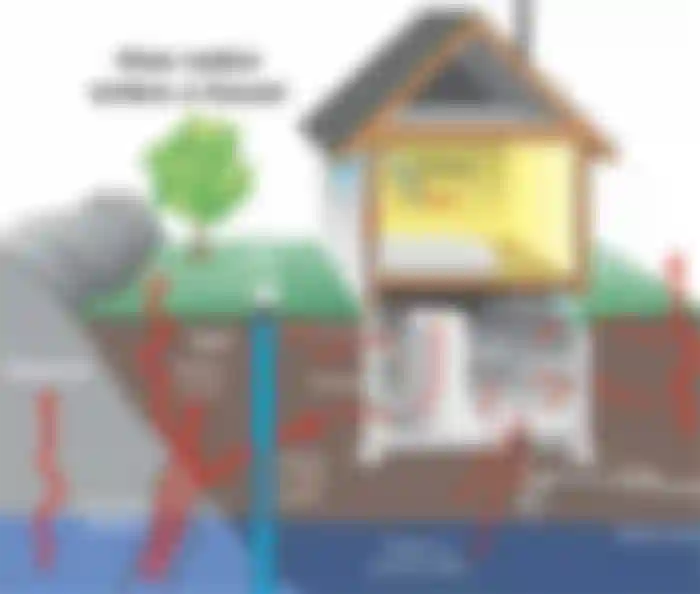Radon:
It is one of the elements of the periodic table and it is a noble and radioactive gas with an atomic number of 86 and is the heaviest gas. It was discovered in 1900 AD by the researcher Dorn in the salts of radium. Natural radiation.
It exists in nature in the form of three isotopes:
1- Radon Rn 222: produced by uranium 238, which is the longest life of radon isotopes, as it has a half-life of 3825 days and is an emitter of alpha particles with an energy of 5.4 Mev.
2- Radon Rn 220: Thoron produces 238, has a half-life of 55 seconds and emits alpha particles with an energy of 2.6 Mev.
3- Radon Rn 219: It is produced by the decomposition of uranium 235, its half-life is 4 seconds.
Radon is considered one of the emitters of alpha particles that cause lung cancer. We heard a lot about the curse of the pharaohs that hit archaeologists when they opened the graves of the pharaohs, and the truth is that that curse is nothing but their inhaling radon gas trapped for several years inside closed graves, which led to the occurrence of cases of skin cancer and lung cancer.
Radon in our homes:

The concentration of radon gas inside buildings increases compared to its concentration in the open air, and the concentration of radon gas inside buildings depends on the type of soil, the type of walls, and the method of ventilation. In open buildings with continuous ventilation, the concentration of radon gas is close to its concentration in the open air, and in closed places that are not constantly renewed. Radon concentrations can reach dangerous levels.
Groundwater sources are also a source of radon, as radon is dissolved in the water and emerges when water is used, especially in bathrooms.
In addition, some sources of natural gas used in homes are characterized by the presence of high concentrations of radon that escalate into the atmosphere when that gas is burned.
Reducing radon in homes:
Spend less time in places that can contain high levels of radon, such as: low-lying places in the home, such as garages.
Ventilate the house well whenever possible by opening all windows and turning on the fans, especially in the interior rooms.
Close the gutters tightly and cover them to limit the leakage of radon gas inside the house, or install a water trap in it to block the gas leakage sites.
Stay away from smoking.
Suction the gas from the soil, and tightly close the places and openings from which the gas is expected to leak, with the help of a specialized engineer.
